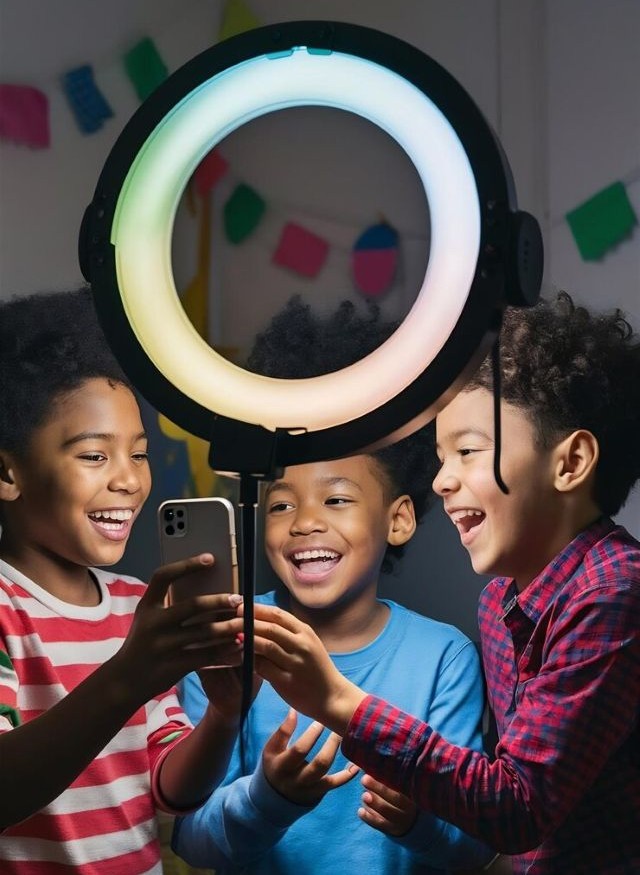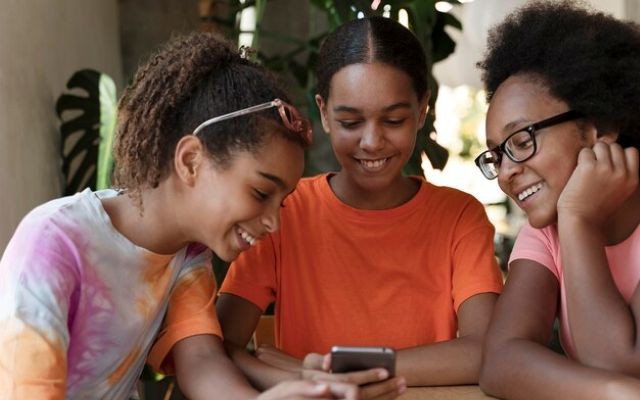A new global study is reigniting the debate around smartphones and young kids and the findings are hard to ignore, especially if they already have one.

Published in the Journal of Human Development and Capabilities, the study analyzed data from over two million people across 163 countries. It found that kids under the age of 13 who have smartphones are more likely to struggle with poor mental health, disrupted sleep, cyberbullying, and weakened family relationships. Perhaps most concerning, researchers also found associations with suicidal thoughts, decreased self-worth, and detachment from reality. Girls were disproportionately affected.
Researchers are now urging policymakers and parents to treat smartphone use for kids the same way we do alcohol or tobacco, with strict age-appropriate regulations.

But here’s the reality, many children already have smartphones. In fact, according to Common Sense Media, more than half of American kids (53%) have smartphone access by age 11. So, what’s a parent to do once the phone is already in their child’s hands?
If your child already owns a phone, don’t panic. Experts say there’s still plenty you can do to protect their mental and emotional well-being. It starts with clear limits and open communication.

“Routinely monitor your child’s activity, including apps, messages, and screen time,” Alisha Simpson-Watt, LCSW, BCBA, LBA, and founder of Collaborative ABA Services said in a recent interview with Parents.com. Equally important is fostering open dialogue. “Engage in ongoing conversations about responsible phone use and what to do if something upsetting happens online,” she advised.
Dr. Ariana Hoet, Executive Clinical Director at the Kids Mental Health Foundation, underscores the importance of parental involvement. “Children’s brains are still developing, so they are not able to set their own limits, fully process some of the information they consume, and have difficulty with emotion regulation.”
And while many parents purchase phones for safety reasons, framing can help establish healthy boundaries. “Remind your child that safety is the main reason that they have a phone, which helps set the standard that other phone features are not essential and intended to be used in moderation,” Dr. Erica Kalkut, Executive Clinical Director at LifeStance Health added to the conversation.

So, when is the right age for kids to own a smartphone?
There’s no universal “right” age for smartphone access. Experts agree it depends on the child’s cognitive, social, and emotional maturity, not just their age.
A few things to consider:
• Could a smartwatch or basic starter phone suffice?
• Is your child responsible with their belongings?
• Are you ready to manage screen-time boundaries?
• Does your child respect household rules and limits?
“If your child is constantly testing limits and breaking rules, it’s likely they will not follow rules online either,” Dr. Hoet cautioned.

Getting a phone doesn’t mean automatic access to TikTok, Snapchat, or Instagram. In fact, experts recommend holding off on social media even after kids turn 13.
“Many social media platforms are not recommended for kids under the age of 13. Even those over 13 may need parental guidance,” Dr. Monica Barreto of Nemours Children’s Health told the outlet.
According to experts, girls, in particular, may face heightened risks. “They may feel stronger pressure to fit in socially, making them more vulnerable to cyberbullying, exclusion, and cliques,” Simpson-Watt explained.
Dr. Hoet added that girls “may use likes, comments, and followers as a way to measure their popularity and self-worth,” while Dr. Barreto notes that exposure to unrealistic beauty standards can fuel body dissatisfaction and anxiety.

“Children under the age of 13 are still developing crucial cognitive and emotional skills, and early exposure to devices can disrupt their attention spans, hinder emotional regulation, and interfere with sleep patterns,” Dr. Barreto said.
Ultimately, the experts agree, whether your child is 11 or 15, the key is to remain involved, stay informed, and never stop having those important conversations.







